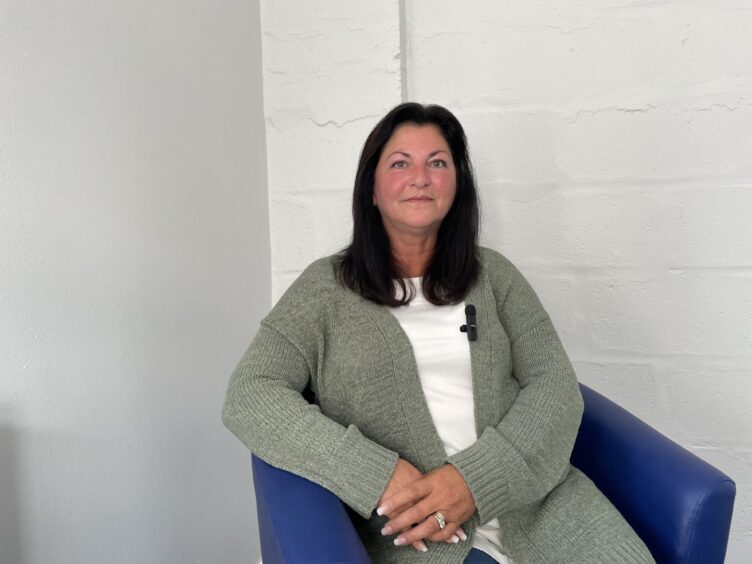It has been hailed as a landmark piece of legislation which could stub out smoking for the next generation.
The Tobacco and Vapes Bill cleared a major hurdle at Westminster, with MPs voting voting it to the next stage with 383 to 67 in favour. A four-nation approach is being taken, with the legislation being UK-wide. Though Holyrood would need to give legislative consent to the Bill. If it becomes law it would the first generational ban on tobacco sales in the world.
The sale of tobacco products would be illegal to those born after January 1, 2009. Restrictions and regulations on the sale of vapes relating to flavours and packaging to make them less attractive to children are also included in the Bill.
Plan has been criticised
It has garnered support from across the political divide, and from charities such as Action on Smoking and Health (ASH) and health bodies such as the Royal College of Paediatrics and Child Health.
However, it has also drawn criticism over concerns about freedom of personal choice.
Rishi Sunak’s plan for a “smoke-free” generation is something of a flagship policy, however the prime minister has faced opposition from members of his own party to the proposals.
Among the big names voting against it were former prime minister Liz Truss and Kemi Badenoch. Truss described it as a “virtue-signalling piece of legislation”.
Peer pressure led Avril to start smoking
Banff woman Avril Bruce, 53, is among those who have been following developments with interest. The mum-of-two and grandma-of-four, knows just how hard it can be to stop smoking – and just how much it can impact on someone’s life.
Avril started at the age of 13. It was something she continued for decades until she experienced significant health problems more than five years ago.
She said it was “peer pressure” that led her to start smoking, adding: “By the time I realised I was addicted to it, I couldn’t stop.”
Traumatic events and stresses in her life made it difficult for her to give up, and as Avril said: “There were no laws out that would stop me doing that – and I could buy cigarettes from the ice cream van – singles, it didn’t even have to be a packet. It could be singles and a sweetie bag, so it encouraged me to keep smoking.”
While she and her husband Mike, 55 – who still smokes – did make attempts to quit, they found it hard, with Avril saying there was no support and “nothing there for us to turn to”.
Avril ended up smoking up to 40 cigarettes a day. She says they struggled financially and money for cigarettes “came before rent getting paid, or any bills”.
Change came when Avril began to feel unwell over a period of several weeks. She had doctors appointments to investigate, but ended up having an ambulance called out when things worsened. It turned out she had a massive DVT in her leg and pulmonary embolism in her lungs.
New Bill could bring ‘amazing’ change
Avril said: “It was a massive wake-up call for me.”
She made the decision to stop, but said the “downside” was she turned to vaping.
Avril has been doing research with ASH Scotland, and through that she has come to realise how much nicotine was in her vapes.
She added: “Now I know why I can’t stop vaping – because I’m addicted to the nicotine.”
She added: “I think if we had what could become law now, I wouldn’t have been smoking. It’s not just for us, this goes for generations – because my parents smoked. My mother died of lung cancer. Both my daughters started smoking as teenagers.”
Avril says she believes if the Bill becomes law it will bring about “amazing” changes. She said: “It’s teaching the youngest ones to educate the adults about their smoking. So I’m absolutely for it, I really am. Because I think if you can get a whole generation of kids that are not smoking, it’s the only way that there’s going to be change.”
‘The freedom from smoking’
Aberdeen University senior lecturer in global public health, Lucia D’Ambruoso, has been involved in research, along with ASH Scotland, on the cost of smoking and cost of living.
She said: “ASH Scotland have worked with us in the School of Medicine and Aberdeen University for many years, and we were able to stand up a study that helped us empirically demonstrate that rural and underserved communities most disproportionately hit by both availability of smoking products and the health consequences of smoking, do not want these products in any way, shape or form.
“The routine argument against this Bill is a libertarian one – the freedom to smoke. I think our study shows something quite interesting – there’s another side to that coin. The counter argument is what about the freedom from smoking, not just for people living in underserved communities, but for children, the next generation coming up.
“That was very clearly the case, across the board, across all smoking products, e-cigarettes and more conventional tobacco.”
Clearing the shelves of ‘lethal’ product
Sheila Duffy, chief executive of ASH Scotland, added: “There was a real sense from the people that the local researchers were working with, they wished they had not been in the position they’re in, of finding tobacco to be so addictive, so expensive, so much part of their lives.
“For me, the advantage of this measure is it will progressively clear the shelves of a product that is lethal to up to two thirds of its consumers when used long term as intended, and as addictive. So it actually takes away the choice to put it down and walk away.”
Smoking rates in adults in Scotland have been steadily falling. However, it causes more than 8,000 deaths every year.
Sheila said while there’s been a decline in tobacco use in adults it hasn’t been accelerated by e-cigarettes.
She said: “What we are now seeing is a massive uptake of new nicotine products by youth and by children, including those that weren’t using tobacco and weren’t at risk of using tobacco.”
She added that the promotion, advertising and marketing of such products had to be tackled – not just through UK legislation, but through powers the Scottish Government currently has to put regulations in place.
Could vaping increase?
Dr Matthew Fraser, a public health lecturer at the Robert Gordon University said the Bill could provide substantial benefits for both individual and community health.
Pointing towards how smoking can impact on public health he said: “From a public health perspective, the economic cost of treating smoking related diseases in Scotland is between £300-500 million per annum. Whilst it is unclear how much is spent on smoking cessation resources in Scotland, in 2023 approximately £9-10 million per annum was budgeted for Scotland’s health boards for smoking cessation and prevention.”
But if the Bill passes could there be an increase in vaping? Commenting on this Matthew said: “Globally, e-cigarette users now exceed traditional tobacco smokers and vapes represent the most-used tobacco product amongst young people.
“The UK Government highlight that young people engaging in vaping has tripled over the last three years (1 in 5). This report also highlights that 69% of current vape users are 11-17 years old in the UK and 20.5% of children aged between 11-17 have experimented vaping, giving rise to a new generation of nicotine-addicted adolescents which this Bill will help combat.”
‘A step in the right direction’
Scottish Conservative deputy health spokesperson and north-east MSP Tess White said she welcomed the Prime Minister’s plan, saying: “It’s vital that as a society, we do everything we can to create a smoke-free generation and tackle youth vaping.
“While health evidence on the impact of vaping is inconclusive, and it can be used as an effective means to quit smoking, the rapid increase in the number of users, particularly those who are underage, is very concerning.”
Meanwhile, SNP MP for Gordon Richard Thomson said: “The Tobacco and Vapes Bill is a step in the right direction to make Scotland smoke-free and tackle the detrimental impact of smoking on children’s health. The Bill is a good example of all four governments in the UK working together on an issue of common ground.
“I think it’s telling that the Royal College of Paediatrics and Child Health have described its passing as ‘a significant day for children’s health’.
- For information on smoking cessation services go to nhsinform.scot/quit-your-way-scotland





